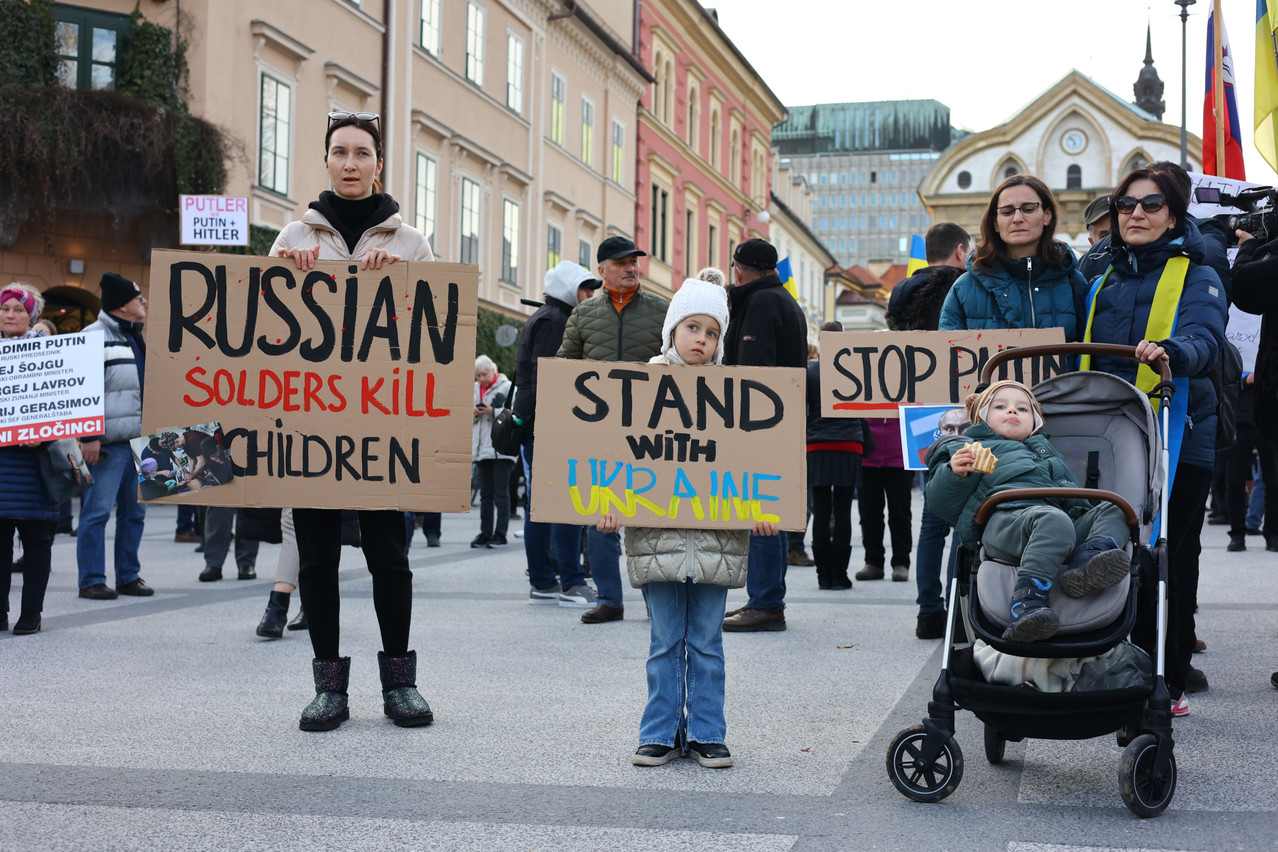It is hard for children today to ignore images from the conflict between Russia and Ukraine. Should they be told about it? And how?
“You don’t talk to an 8-10 year old in the same way as a teenager,” says Gilbert Pregno, psychologist and president of the Consultative Commission on Human Rights (CCHR). “Even a 3-year-old child, who does not have the capacity to understand what is going on, will feel the psychological state, the anxieties of the parents, so they will realise that something is happening. In these cases, you don't necessarily have to talk to them about the war, because they are still very young, but the parents must act as a filter and avoid letting their anguish show through.”
For older children, Gilbert Pregno believes “you have to explain what war is, because they don’t really have an idea of what it is, but you have to be very careful: you mustn’t lie, but you mustn’t say everything either. With a child aged 3 to 6, you can say that things happen, that there are people who disagree, and that, as between brothers and sisters, there can be big conflicts. What is important in general is to always reassure the children. They perceive reality and emotions through the filter of their parents, who are attachment figures. For children over 6, they receive information at school, perhaps between children, or have access to screens and images. They need to be told that what is happening is serious, but it needs to be said in a reassuring way.”
Involving children in solidarity
However, the psychologist advises parents to avoid watching TV news or social networks with violent images of attacks or bombings next to their young children. “Screens, in general, are bad for brain development, but these kinds of images can really disturb them, and witnessing violence can have a traumatic effect, even through a screen.”
From age six to teenage years, what words should you use? “You can say that there is a war between two countries that don’t agree, that it’s creating a lot of damage, that you hope it will end soon. You have to explain that they mustn’t be afraid of anything, that it doesn’t change anything in their daily life, but that you can help. I think the solidarity we see across our country and Europe is exceptional, and we can involve the children in this help.”
For teenagers, “we can talk about what is happening and exchange, ask their opinion. We must not minimise, but tell them that we must keep the hope that things will get better.”
The central role of teachers
Some parents also choose not to talk to their children about the war in Ukraine. “I think that for the little ones, yes, you shouldn’t talk about it, but for the older ones, you don’t know if they don’t know anything, if they heard about it at school, if they don’t want to talk about it, and so on. So it’s always better to give them a chance to say that there’s a big problem on the planet: ‘If you want to talk about it with me, I’m available’,” he says.
“I wouldn’t skip talking to them about it, because you can’t interpret the child’s silence. You can say: ‘Have you heard about something?’ You have to be proactive. You can say you’re scared, but it will be okay. Children don’t like perfect parents, but prefer parents who talk about their feelings. You can be afraid of something without having to be anxious.”
Conflict has also entered schoolyards, with reports of harassment of children of Russian origin, which the LUkraine association recently denounced. “We have to explain to children that there are not only good and bad guys, and that the Russian population also suffers, that the damage is on both sides, and we must not reduce the Russian population to the aggressor,” says Pregno.
“I would say that the role of the teachers is central, it is not only the parents who are the attachment figures and who transmit important information to the children, but it is also up to the teacher to establish a kind of balance in what is said between his pupils. There are parents who may not be able to explain, and the school could have a compensatory role.”
Expressing feelings through a drawing
The ministry of education, in collaboration with child psychiatrists, has published advice sheets in three languages (French, Luxembourgish, German) on the subject.
“If you are very worried yourself, you should not let your own emotions get the better of you and pass them on directly to the children. Try as much as possible not to spread panic and fear. Try to explain the situation as neutrally as possible, to remain optimistic by pointing out the positive aspects (e.g. Europe is united),” the leaflet says.
“Parents can encourage their children to express their feelings through a drawing, letter or story. Older children can look directly at the causes and consequences of the war with books for their age, programmes or websites,” the sheet says.
The ministry also refers to a helpline on 8002-9393, from 8am to 6pm on working days, for psychological advice and family support.
This article was originally published in French by and translated for Delano
